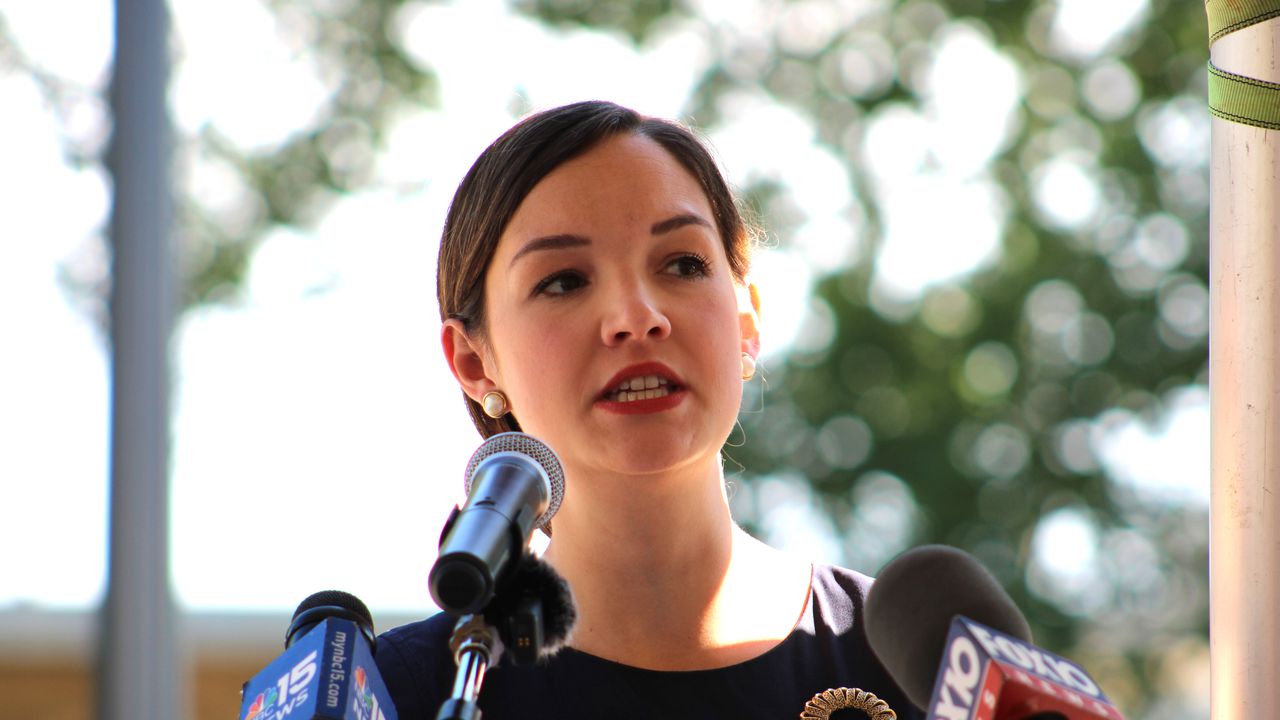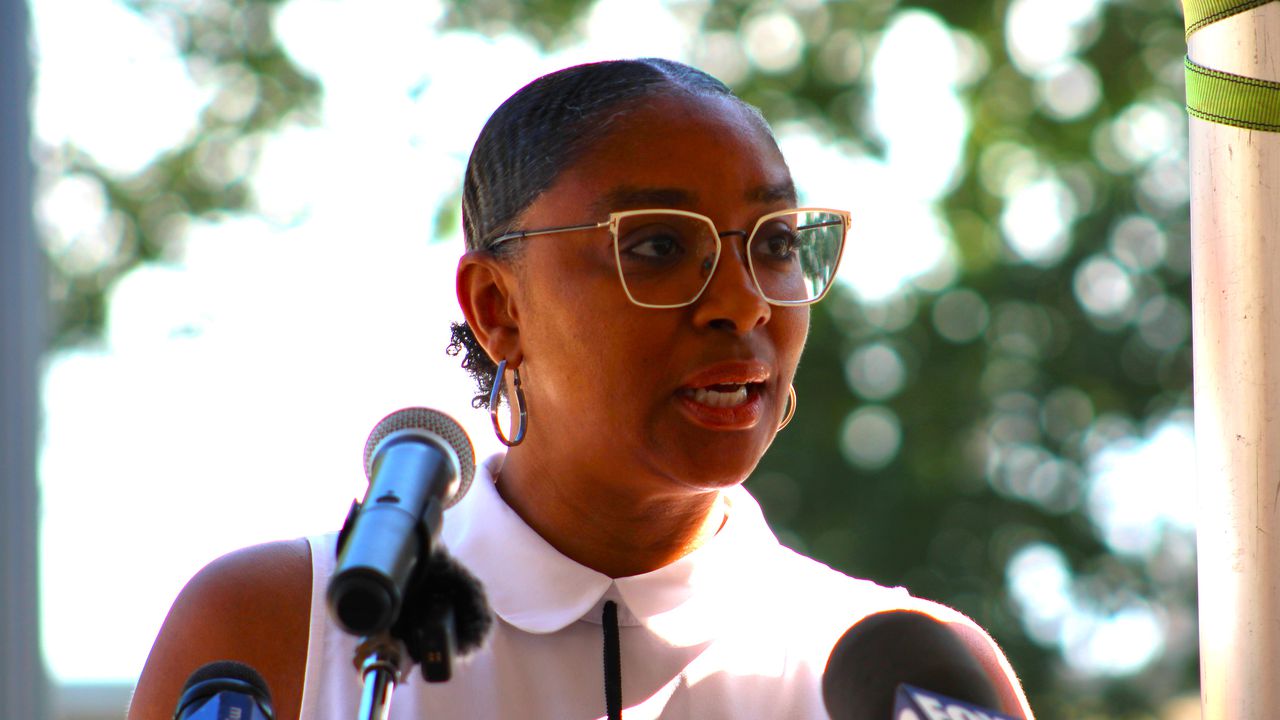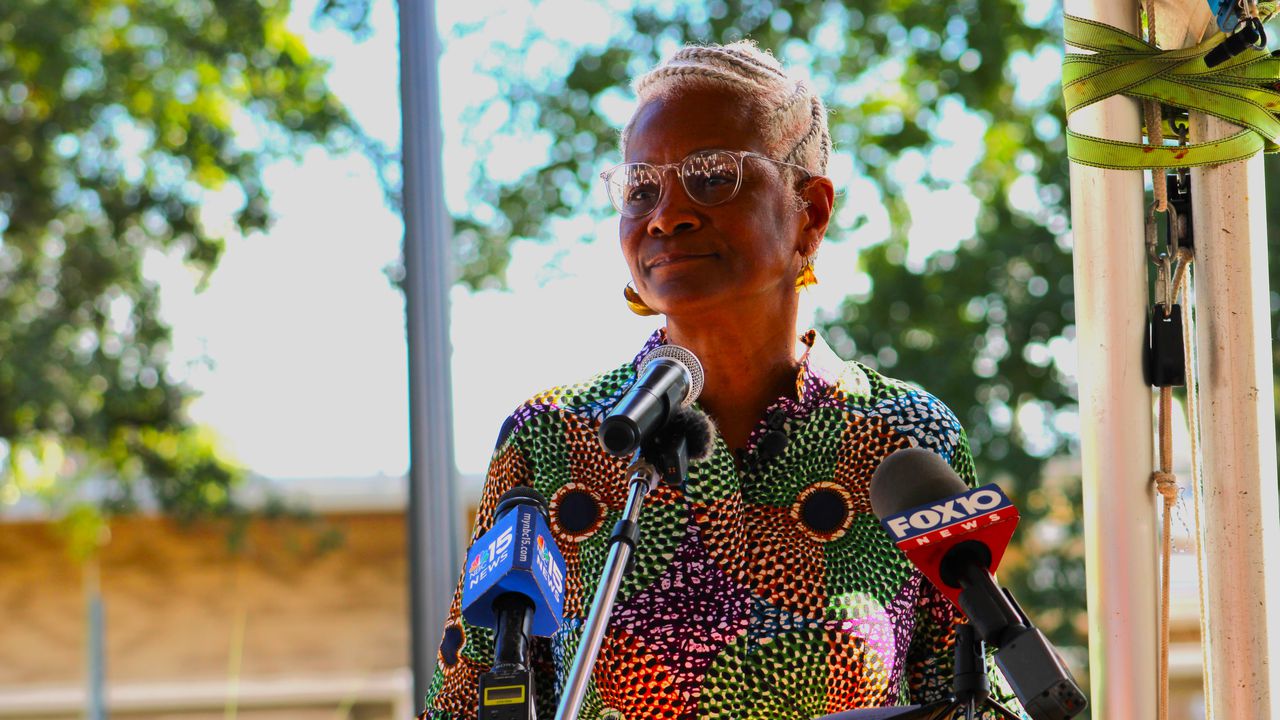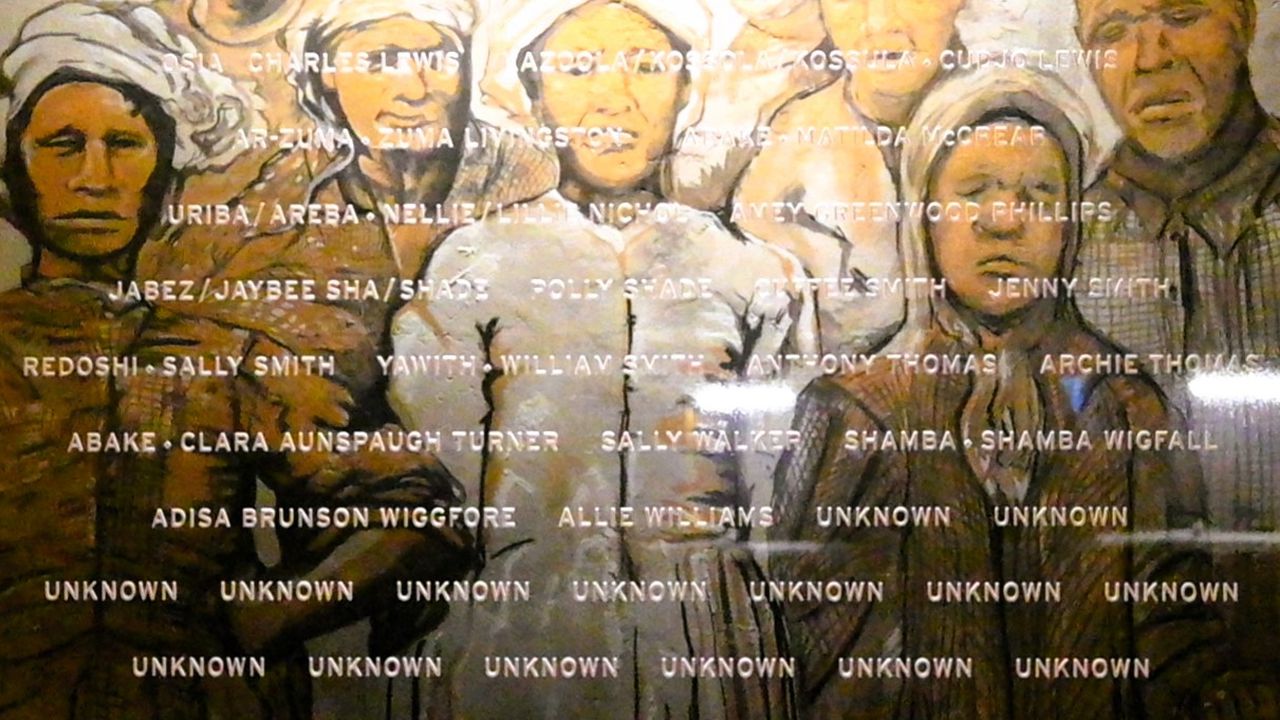Africatown Heritage House opening a triumph, but âthe work does go onâ
You proceed a certain distance through the Clotilda exhibition at the brand-new Africatown Heritage house thinking the curators have done a great job telling the whole story. And then you hit a stark, deliberate reminder that in reality, the whole story is much bigger.
Before you get to the first public display of Clotilda artifacts, you get a lot. You get a general history of the transatlantic slave trade, and a lot about the notorious voyage that brought 110 captives into slavery in Alabama shortly before the onset of the Civil War. You enter a room lined with documents such as property deeds and marriage certificates, providing insight into the struggle of Africatown’s founders to establish and maintain their unique community.
At one end of this room sit a couple of binders for visitors to flip through, providing information on every known Clotilda survivor. Turning the pages, it’s easy to think, “They’re all here.”
But at the other end of the room, a sheet of clear material over a depiction of some of the survivors tells a different story. Engraved upon it are the names of the known survivors, many of them featuring multiple African and English names: Kazoola/Kossola/Kossula/Cudjo Lewis, for example. And below all those names appears the word “unknown,” over and over, row after row, more than 70 times in all.
A detail from an exhibit in the Africatown Heritage House. The exhibit lists the known survivors of the slave ship Clotilda’s final voyage — and all those whose names and stories remain unknown.John Sharp | [email protected]
The unknowns outnumber the named survivors nearly two to one. This comes as no surprise to those with a personal connection to the story, or to those who’ve studied it deeply. It’s well known that the captives carried aboard the Clotilda were split into groups and given or sold to different owners. It’s well known that only a fraction of them stuck together in the Mobile area and joined in the creation of Africatown after the war.
Theirs are the names passed down through history, theirs are the stories shared among descendants. Had this community never been formed, or had it not endured, they too would be unknown.
But to see it this way spells out a shocking truth: Everything you’ve ever heard, read or seen about the Clotilda survivors and the community they founded originates from about a third of the prisoners carried on that voyage. There’s an immediate sense of loss, from the stories that may never be told. But there’s also hope that they’re not all lost forever.

Meg McCrummen Fowler, director of the History Museum of Mobile, speaks at the dedication of the Africatown Heritage House on July 7, 2023.Lawrence Specker | [email protected]
“There is research that’s ongoing, and as that research moves forward, this exhibit will grow and change as we learn more,” said Meg McCrummen Fowler, director of the History Museum of Mobile. “That’s one of the interesting things that reminds us that this is a living, active, growing story. We don’t know all the names but more are being researched and discovered.”
Speaking to descendants and dignitaries at a Thursday night reception at the History Museum of Mobile, Fowler described the opening of the Heritage House as “a moment of culmination.” And it certainly is that, coming after years of effort. But the deliberate decision to include all those unknowns shows that Fowler and the others who put the exhibition together know the job isn’t done.
That’s an insight that resonates with descendants and their supporters.
“The work does go on,” said Jeremy Ellis, president of the Clotilda Descendants Association, said Friday after a dedication was held for the facility. He said he suspected that an upcoming book from Hannah Durkin may identify more survivors. (The book, “The Survivors of the Clotilda: The Lost Stories of the Last Captives of the American Slave Trade,” is due for January release, according to publisher HarperCollins.)
Ellis toured the Heritage House with other descendants on Thursday, and at the reception that evening he paid it the highest praise.
The Heritage House had been praised by the U.K. arm of National Geographic as one of the best new museums to visit in the United States in 2023, he said, and “I am here to confirm that that statement is true.”
“When I tell you than it is the most beautiful, thorough, well-done exhibit that I’ve seen – you all just have no idea,” he said on Thursday. “I had the pleasure of taking my four-year-old daughter and letting her embrace that moment. … She’s going to grow up knowing that story. She’s going to grow up telling that story. And she’s going to tell it the way it’s told in that exhibit and the way that we are going to continue to tell that story.”
There are places in the nation where people are trying to rewrite history, to take it away, Ellis said. “We are the memory keepers and it is us, the descendants, who have to protect this story as memory keepers,” he said. “As memory keepers we have the opportunity to tell the story from our own narrative and that’s what we’re going to continue to do and that’s exactly what the Clotilda exhibit does.”
Ellis noted another feature of the roster of unknowns in the Heritage House. It’s accompanied by an audio loop of voices reading out the names and all the unknowns. It’s hard to miss the significance of one “unknown” spoken by a child. Many of the captives were children.
Those aren’t random voices, Ellis said. They’re members of the community. “That’s another way the story is being told by the descendants,” he said.

Altavese Rosario, vice president of the Clotilda Descendants Association, speaks at the dedication of the Africatown Heritage House on July 7, 2023.Lawrence Specker | [email protected]
“It’s beautiful,” said Altavese Rosario, vice president of the Clotilda Descendants Association, of the exhibition. “I am proud of the work that went into it. By viewing the exhibit you see that it was a labor of love. You see the personality of the ancestors. The way that it was laid out, the way that the staff was intentional in what was shared, how it was shared, where it was shared in such a way that not only succinctly told the story of the 110 but told in it a celebratory way, in a humanizing way, in a way that was honorable. So I am moved.”
“There’s still more work to be done,” Rosario said. “It lets not only visitors know, but it lets the staff and those involved know that we have to continue, that this is just the beginning of the work.”
“To me, for me, listing unknowns says that Meg and her team share in the responsibility of continuing to do the work,” she said. They didn’t have to draw attention to the lost survivors but chose to do so. “They took the intentional next step,” Rosario said.
Between the reception on Thursday and the dedication on Friday, Mobile County Commissioner Merceria Ludgood was repeatedly singled out for her guidance and persistence in making the Heritage House a reality. As much as anyone involved, she has the right to enjoy the satisfaction of a job done. But at Friday’s dedication, she rejected the notion that this moment of culmination was any kind of a stopping point.

Mobile County Commissioner Merceria Ludgood speaks at the dedication of the Africatown Heritage House on July 7, 2023.Lawrence Specker | [email protected]
“This is more like a kick-off,” she said, as Friday’s festivities wound down. “This hopefully will be a catalyst for the rest of the work we have to do.”
She sees it as a job with two strands. One involves infrastructure, such as the Heritage House and a new Africatown Welcome Center that is being designed.
“Parallel to that has got to be the community revitalization,” Ludgood said, and that means housing, among other things. “We have got to bring people back,” she said. “The future of this community lies in our ability to rebuild from the inside out.”
Rosario said she thinks the Heritage House will promote that effort.
“This is a tiny but mighty exhibit,” she said. “You will leave with not only a greater sense of connectiveness to this community, but to your own family, especially as an African American. This exhibit not only tells the story of the 110 but it tells an American story. An American story that, fortunately, was never forgotten. It was not overlooked. You will leave the exhibit saying to yourself, ‘I want to know more.’ And hopefully you will look for more, hopefully that will bring you back to the community, hopefully that will give you a desire to want to dig into the community, to look into avenues in which you can support the community and just come alongside and be a cheerleader for the community.”
The Africatown Heritage House officially opens to the public at 10 a.m. Saturday, July 8; however, all available tickets have been reserved. “Absolutely no one will be admitted on July 8 without a pre-booked, timed ticket,” according to organizers of the day’s activities, which include a free Community Day celebration from 11 a.m. to 3 p.m. at the adjacent Robert L. Hope Community Center.
The Heritage House will reopen for normal operations on Tuesday, with plenty of openings throughout the week. Admission is free for Mobile County residents. For full information including online ticket purchases, visit https://clotilda.com/.
Related:
Africatown Heritage House opening: Public events, festivities to know about
Worries over Clotilda owner’s artifacts surface ahead of Africatown Heritage House opening
